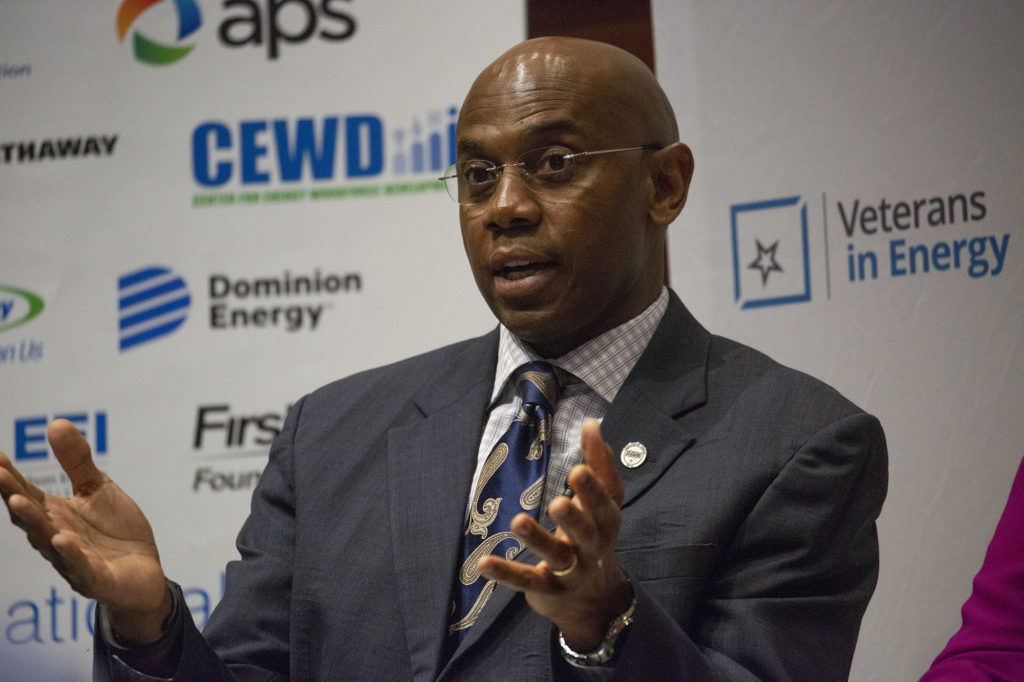
When it comes to serving in the military, it’s all in the family for Curtis Wynn, president and CEO of Roanoke Electric Cooperative.
His father was a veteran of World War II. Two of his brothers joined the Army; another, the Air Force. His wife served in the Army in Germany and the U.K.
His son, a recent University of North Carolina-Chapel Hill graduate, has enlisted in the Air Force with the goal of becoming a commissioned officer.
Wynn himself served seven years in the Army National Guard and the Air National Guard.
He believes electric cooperatives should boost their efforts to bring today’s highly skilled veterans home to challenging co-op careers rooted in service.
“We’ve done a good job of recognizing highly trained vets in the workforce,” said Wynn, who also serves as vice president of the NRECA board of directors. “In those instances of recruiting and hiring vets to work at cooperatives, we need to become more aggressive. We have to step that up a little bit to make sure we get our share of the talented people coming out of the military.”
Wynn, who spoke at the 2018 Veterans in Energy Forum earlier this fall at NRECA’s Arlington, Virginia, headquarters, said co-ops will need to build strategies, coordinate efforts and dedicate resources to recruit the best and brightest workforce for an increasingly high-tech industry.
“It is going to require commitment … to do it at the level we see happening with investor-owned utilities and other energy corporations,” he said.
Wynn outlined three key values electric co-ops share with the military: leadership, mission and purpose.
“Some of our core values and principles align with what they are taught in the military,” he said.
“Because we are rural and have commitment to community and are more purpose-driven, that might be an area of attraction to military vets. To the extent we can, we should promote that.”
He recommended that co-ops not just look at operations jobs when considering veterans.
“It’s not just about line personnel. There are all kinds of jobs,” said Wynn. “Vets bring a lot to the table.”
Wynn said the skills soldiers are learning today are particularly relevant to electric co-ops that must manage rapid growth in high-tech areas.
For example, “the caliber of cybersecurity skills they have in the military are badly needed,” he said.
Co-ops also need “technically skilled people who can adapt to the type of work we hire them to do. Now, with smart meters, communications, automation of our systems, all those skillsets would be helpful.”
He added that the leadership qualities of veterans would be a strong fit for cooperative management and senior level executive positions.
Wynn’s ultimate message to veterans is simple: “The industry needs you.”
“We are going to need all the talent and resources we can get to get through this transformation,” he said. “We have got to get on [veterans’] radar. If vets don’t know about us, they can’t consider us.”
Cathy Cash is a staff writer for NRECA.
Read More:
VIE 2017 – Veterans and Energy: A Perfect Match
Co-op Veteran Program Grows
RE Magazine: Vets and Co-ops, ‘A Perfect Fit’